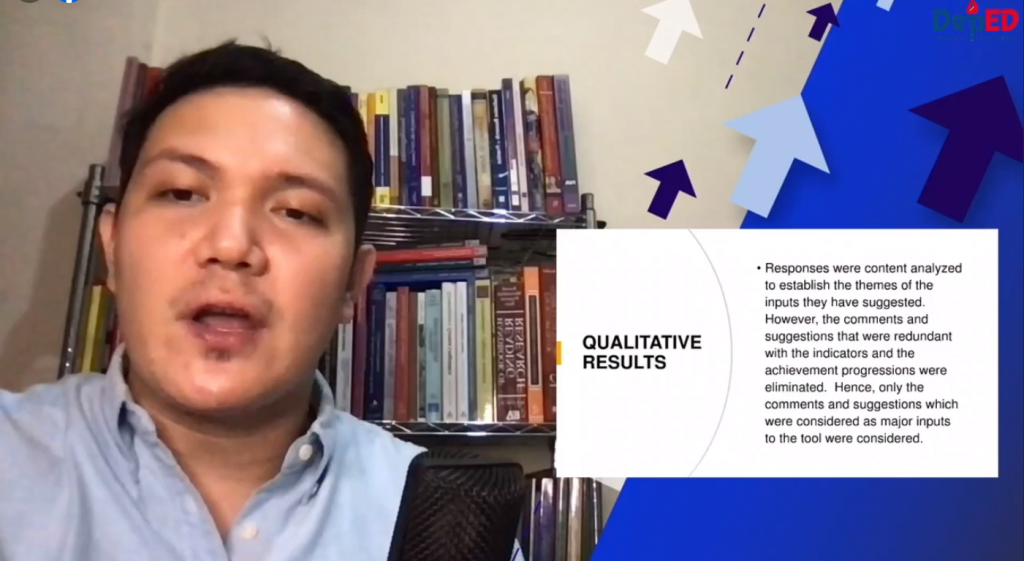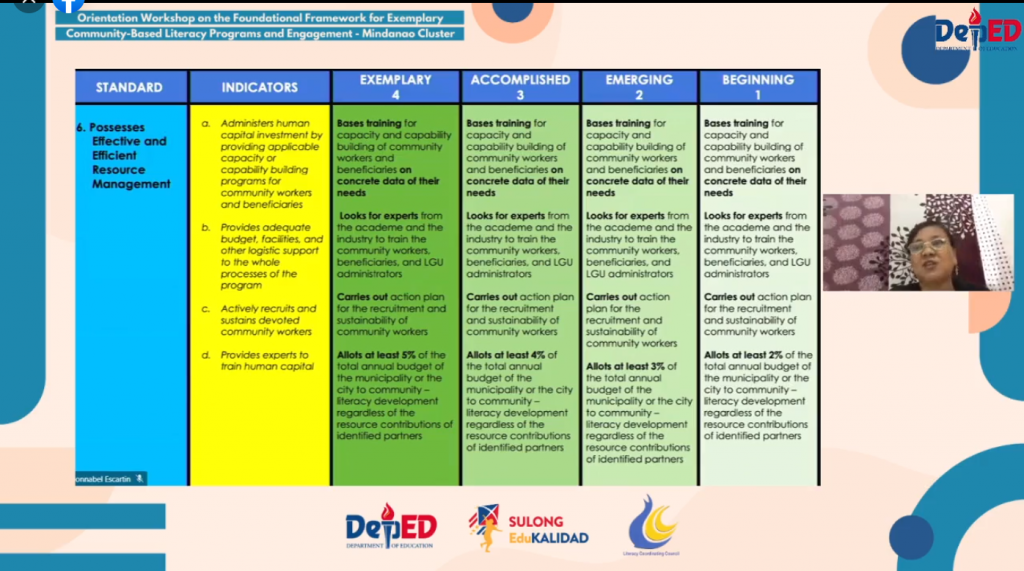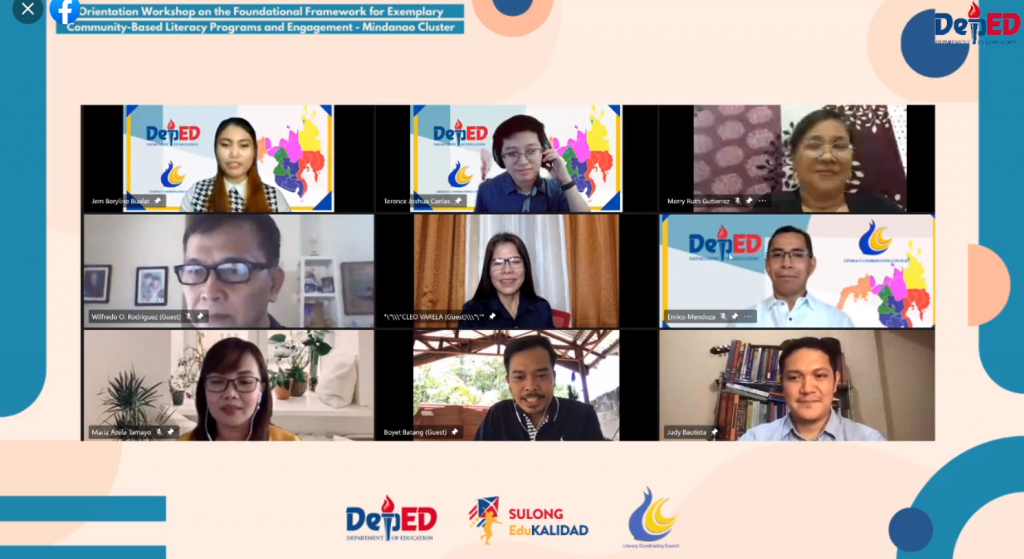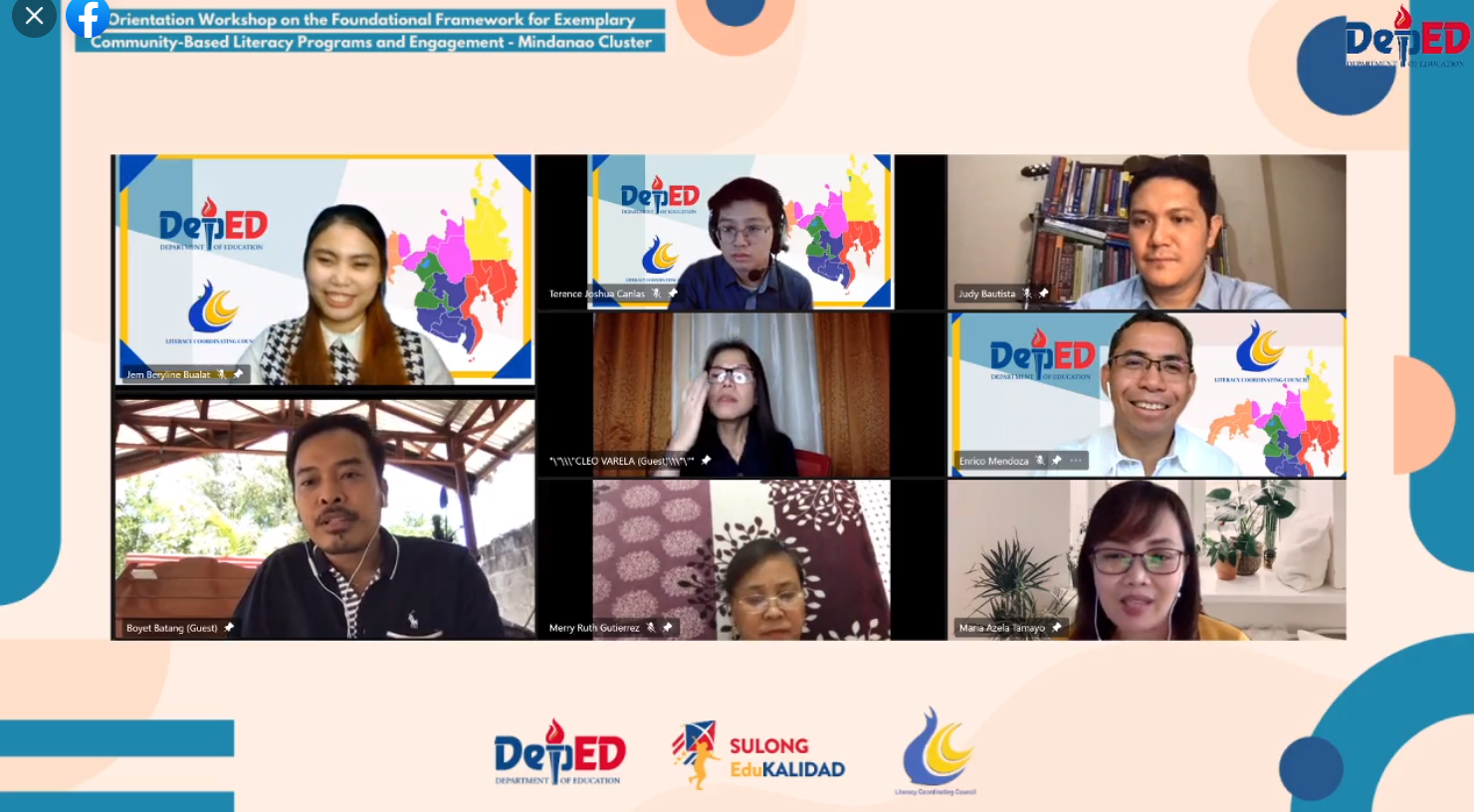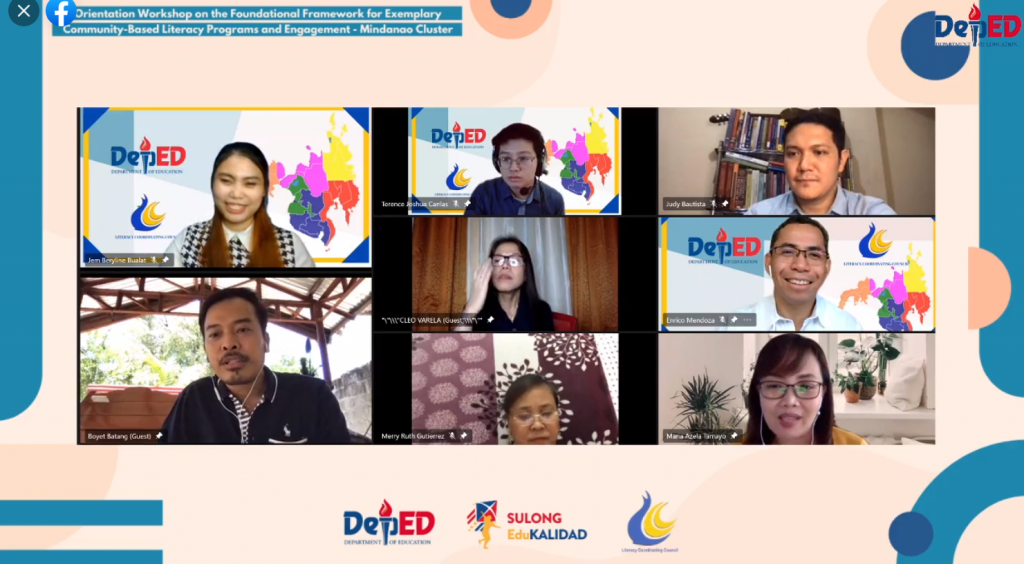
In pursuit of universalizing literacy in the country, the Literacy Coordinating Council (LCC) continues its series of Orientation Workshops on the Foundational Framework for Exemplary Community-Based Literacy Programs and Engagement. The Philippine Normal University (PNU), being the Council’s lead member agency for research, spearheads the capacity building on the standards and monitoring and evaluation (M&E) tool to the delegates of the Local Government Units (LGUs) and Nongovernment Organizations (NGOs) from Regions IX, X, XI, XII, CARAGA and BARMM.
Held on May 5, 2021 via Microsoft Teams with live streaming to DepEd and LCC’s Facebook pages, the research team composed of Dr. Judy C. Bautista, Dr. Merry Ruth M. Gutierrez, Dr. Boyet L. Batang, Dr. Maria Azela L. Tamayo and Dr. Leonora P. Varela led the orientation. The first two researchers served as the resource persons who thoroughly explained the developed foundational framework and M&E tool while the latter researchers moderated the discussions both in MS Teams and online via Facebook. The said two topics were known as the results of the Phases I and II of the DepEd LCC-funded research study on literacy conducted in 2018 and 2019 across the country.
During the open forum, various issues and concerns were raised by the participants. On the issue regarding the inclusion of the legal basis for indigenous peoples (IP) in the tool, Dr. Bautista clarified that since the analytic scoring rubric is aimed to be encompassing, it did not include specific groups, such as the IPs or other sectoral groups. However, different localities may do so especially if the programs developed within the community were geared towards them, as revealed by the needs assessment and analysis conducted. The said tool was designed to cater community literacy needs either in terms of majority or ethnolinguistic minority needs. Dr. Gutierrez also added, “No one is stopping you in including them (IPs). This instrument is not discriminating them but making them integrated to the whole community system we have… We appreciate all languages and it depends on your goals whether you include or exclude them in your planning of your programs.”
Mr. Enrico R. Mendoza, LCC Secretariat (LCCS) Chief, reiterated that the participants have the liberty to use the research-based framework and tool in doing self-assessment of their community-based literacy programs and familiarizing themselves with its contents and features for adoption in their respective local communities. He also said that the research team is currently in the process of drafting a DepEd Order and discussing it with the office of G.H. S. Ambat, DepEd Assistant Secretary for Alternative Learning System (ALS) Program and Task Force, for its proposed national adoption. Mr. Mendoza further expressed that the said framework and tool may also be used as basis in the development of the evaluation criteria for the conduct of LCC’s National Literacy Awards (NLA).
Aside from these, the involvement of the Parents-Teachers Associations (PTA) was raised during the session. It was mentioned by one of the participants that the PTA is very much willing to get involved in the said endeavor and may even request budget from the LGUs, as necessary. Mr. Mendoza shared that LCC has been engaged with PTA through DepEd’s External Partnerships Service (EPS) in the series of PTA Forums that it conducted in recent years in various regions of the Philippines. He said that one of the topics discussed by the LCCS is the importance of parental support in the teaching and learning process, as well as the important roles that parents play in ensuring that lifelong learning happens not only inside the classroom but also at home. LCC welcomes the support of all partners, including PTAs, because it wanted to apply the whole of society approach in universalizing literacy in the country. The Secretariat will explore possible partnerships with PTAs in mobilizing the parents to eradicate illiteracy in the Philippines.
Another suggestion raised was on the possibility to consider LCC programs as one of the indicators of the Seal of Good Local Governance (SGLG). Mr. Mendoza guaranteed that this concern will be brought up to the concerned office of the Department of the Interior and Local Government (DILG) for their consideration.
The orientation workshop was concluded with the LCCS Chief, along with the research team, appreciating the presence of all literacy mobilizers, including the DepEd ALS implementers, who participated in the virtual convergence. Likewise, the participants and netizens happily concurred the activity as “inspiring and very informative.” They thanked the LCCS for facilitating such a meaningful and relevant activity. They also congratulated the LCCS for achieving another milestone through the development of the standards and analytic scoring rubric for exemplary community-based literacy programs.
To watch the recorded video of this event you may visit https://www.facebook.com/LiteracyCoordinatingCouncil/videos/959435378164858 .
The last orientation workshop is bound to happen on May 14, 2021 via MS Teams which will cater delegates from the Visayas Cluster. To register, please click this link http://bit.ly/Orientation_Workshop_Visayas_Cluster .
